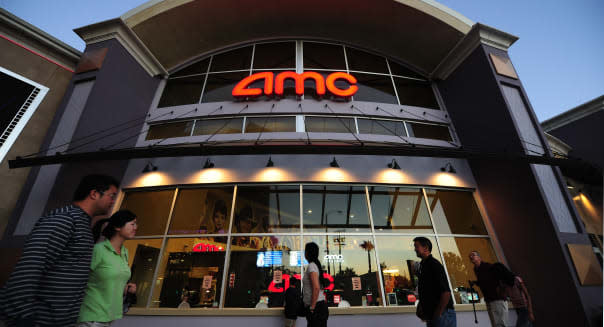AMC's First Quarterly Report: Time to Reboot the Franchise

Moviegoers aren't heading out the multiplex the way they used to, but that doesn't mean that Hollywood is toast.
AMC Entertainment (AMC) reported quarterly results Tuesday. The nation's leading exhibitor -- 345 theaters with 4,976 screens -- went public two months ago. The headline numbers are positive. Revenue increased a better than expected 2.3 percent to $713 million. Profitability also expanded nicely.
However, revenue increased as a result of a 5.5 percent increase in ticket prices and a 3.7 percent uptick in concessions purchased by patrons. Obviously you don't see those kind of gains against a mere 2.3 percent lift in revenue without dealing with more empty seats, and that's just what happened. There was a 3.2 percent decline in attendance.
AMC's ticket takers welcomed 50.4 million guests during the holiday quarter, well below the 52.1 million guests that it entertained a year earlier. That's bad, and what makes things worse is that it had fewer theaters -- from continuing operations -- a year earlier. It wouldn't be wise to hold out for a Hollywood ending.
Customers Want Bigger and Better Things
Apologists will argue that it wasn't a bumper crop of movies hitting theaters, but that's not accurate at all. Last year's biggest box office winner -- "The Hunger Games: Catching Fire" -- opened in November. Disney's "Frozen" also opened ahead of the holidays, and it's the family entertainment giant's biggest non-Pixar earner since 1994's "The Lion King."
Moviegoers still come out for the big movies, and they're also willing to pay more for a premium setting. IMAX (IMAX) reported blowout quarterly results a few days earlier. IMAX screens rang up a record $244 million in ticket sales worldwide. IMAX is also closing out the year with a record backlog of 384 commercial theaters to deploy.
RealD (RLD) is also holding up nicely as a leading provider of 3-D systems for exhibitors. It enjoyed a major boost with "Gravity," a visual treat that was begging to be experienced in more than just conventional 2-D. The sci-fi epic delivered more than $300 million in box office receipts to screens with RealD systems.
However, life isn't a feature presentation once you move outside of IMAX and RealD. Traditional exhibitors are meandering at best, and that's not a good sign in light of an improving economy that would typically suggest that consumers have more money to take in a movie more often.
Fade to Black
We're not consuming less video content. The problem for movie theaters is that there's a lot of competition. Home theaters are getting cheaper and the quality is getting better -- and no one is charged $5 for a cup of soda at home.
Let's also not dismiss Netflix (NFLX). It wasn't even streaming content seven years ago, and now it's serving up two billion hours of premium video a month. Why pay more for a single movie than an entire month of Netflix, and still have to put up with a block of ads at the beginning that you don't get with Netflix?
Exhibitors could also help themselves out by making the experiences more enjoyable. %VIRTUAL-article-sponsoredlinks%The success of IMAX and RealD shows that folks still come out to the movies when it's an experience that they can't easily replicate at home a few months later.
Some theaters get it, carving out space to create unique upgrades, including fancier screens with fewer plush seats and in-theater dining. That isn't going to be enough. Exhibitors need to start rethinking everything from varying their concessions to how they market to patrons before their movies start. Is it that hard to enhance the menu with seasonal snacks themed to the movies that are playing? Is it that hard to push deal texts to willing recipients in the theater during pre-show rites? What's the harm in encouraging post-screening discussions within the theater in designated lounge areas so they're not losing the customer the moment that the credits roll?
Hollywood will survive because there are too many distribution options available these days after a movie's completed its theatrical run. Theater operators are the ones that will suffer if they don't hop on the reinvention process.
"Star Trek," "Batman" and more recently "Robocop" have tried to breathe new life into their franchises with cinematic reboots. It's time for the multiplex to do the same.
Motley Fool contributor Rick Munarriz owns shares of Netflix. The Motley Fool recommends Imax and Netflix. The Motley Fool owns shares of Imax and Netflix.


